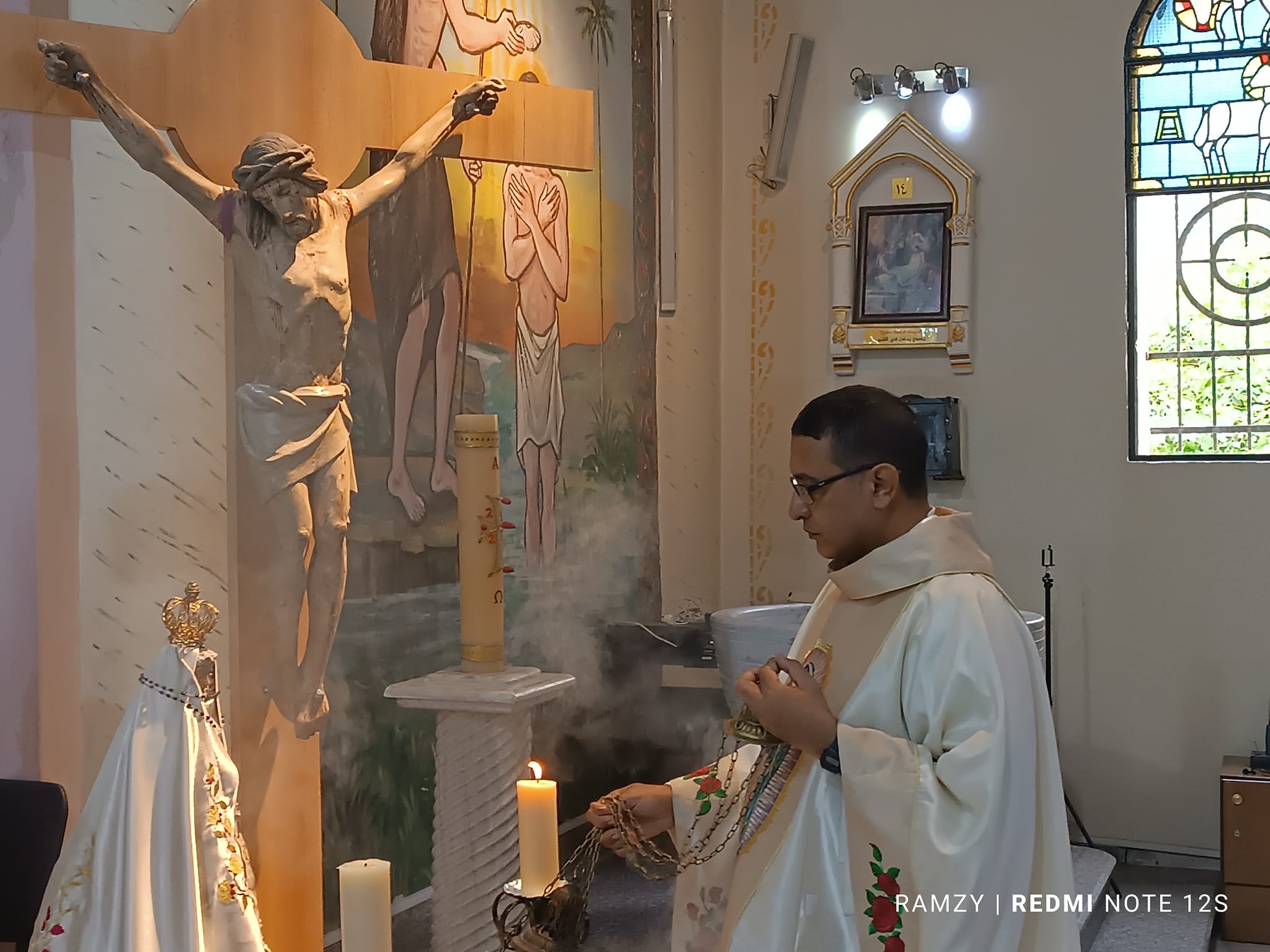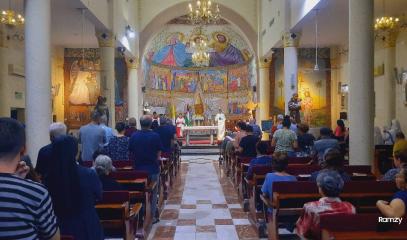For Palestinian leader, peace comes at a 'painful' cost, but it outweighs the cost of war
For Bernard Sabella, the failure of the peace process and the delegitimisation of the Palestinian Authority have left a "political vacuum”. The United States and the international community should work to avoid escalating “violence and vengefulness”. Iranian Foreign Minister and his Vatican counterpart talk on the phone. Card Pizzaballa consecrated the Holy Land to Mary.
Jerusalem (AsiaNews) – For Prof Bernard Sabella, executive secretary of the Department of Service to Palestinian Refugees of the Middle East Council of Churches, the failure of the peace process has left a "political vacuum", which was compounded by the delegitimisation of the Palestinian Authority and the disappearance of the two-state solution from the international agenda, this according to
In an analysis sent to AsiaNews more than three weeks after the start of the conflict which continues to pit Israel against Hamas, Sabella, a former Fatah representative, explains that today more than ever, it is essential to "avoid a return" to "violence and vengefulness” since the “cost of peace, with all the painful concessions of one side and the other, supersedes the cost of war.”
Meanwhile, the Vatican Press Office today reported that Archbishop Paul R. Gallagher, Vatican Secretary for Relations with States, and Hossein Amir-Abdollahian, Iranian Minister of Foreign Affairs, spoke on the phone this morning. The two expressed the same concern for what is happening in the Holy Land, reiterating the need to avoid escalating the conflict and to support a two-state solution for peace in the Middle East.
Yesterday, the Latin Patriarch of Jerusalem, Card Pierbattista Pizzaballa, consecrated the Holy Land to the Immaculate Heart of Mary.
Prof Sabella’s analysis follows:
Failure of the Peace Process left a political vacuum. The vacuum was aggravated by Israeli measures and actions that have become ever more stringent over time. On the Palestinian side, there grew more resistance, both nonviolent and violent. We were caught in a vicious cycle that was interspersed with actual military confrontations, call them wars, in Gaza.
The latest round of unprecedented violence that started with the staggering attack by Hamas on military and civilian targets in the south of Israel, north of Gaza, should be seen in the context of this vicious cycle in which we are all caught.
The ongoing war on Gaza and its population in response to the staggering attack by Hamas on October 7th points to the lack of political alternatives and the absence of peaceful prospects for the resolution of the Palestinian-Israeli conflict.
The shock that resulted from the October 7 attack on Israel led the United States and Europe to actively support Israel and to give political, logistical, financial, and military backup to Israel in waging its war on Hamas.
It became clear that Israel is dependent on US aid, both military and financial. Hence the advice and guidelines given by Washington to Tel Aviv during the current war became crucial in the planning and conduct of this war.
While the United States continues to subscribe to the two-state solution, it has done the minimum to get the two sides to work diligently on a permanent solution that would promote the establishment of a Palestinian state, side by side of Israel.
While the argument that bettering the living conditions of Palestinians would get them eventually to accept Israel and to live with it in peace has had its proponents even among Palestinians, the current war and political stalemate point to the fact that bettering living conditions is not by itself the guarantee for a future of peace.
The Palestinian Authority, which was set up following the Oslo Accords in 1993, was used by Israel. the United States, Europe, and other states as a pacifier and increasingly was propped up for security coordination but was purposely left without real power and credibility among its people.
The weakening of the Palestinian Authority led inevitably to the strengthening of Hamas within the Palestinian population. This process weakened those Palestinians who believed both in nonviolence and in the peaceful resolution of the political impasse with Israel. This group of Palestinians remains a significant group that has been neutralized by the stalemate of the political process and by the rise of Hamas and other militant Palestinian groups.
The continuing siege on Gaza for the last 15 years has not helped either. It has prevented the development of the Gaza Strip and enabled the setup of an alternative government that became at odds with the Palestinian Authority in Ramallah and its policies and practices regarding the continuing Israeli occupation of Palestinian land.
Some politicians, in Israel and elsewhere, were pleased with this intra-Palestinian division and, in fact, worked to promote it. The Palestinian division was used as a pretext in order not to advance on the political path of finding a two-state solution. Israeli Prime Minister Benyamin Netanyahu clearly stated that there will never be a Palestinian state.
First, I do think that the final responsibility for making peace lies with both Palestinians and Israelis. No stalling on either side and no justification whatsoever for actions and policies that go counter to the responsibility of making peace a reality.
Second, throughout the peace process history between Palestinians and Israelis, it was clear that the intervention of international partners was essential in bringing about agreements about specific ceasefires, exchange of prisoners and hostages, improving of living conditions, allowing the construction of needed service infrastructures, etc.
Third, the United States has a special role to play in the efforts at peace-making the day after the dust of war has settled.
Left alone, Palestinians and Israelis will not succeed in reaching the hoped-for peace. The Israeli and Palestinian narratives remain in conflict with one another and these conflicting narratives have ramifications on the ground that need to be addressed. Nonetheless, if we are to avoid a return to a fresh cycle of violence and vengefulness that would cost thousands of lives and countless others of injuries, not to speak of the physical and ecological disaster that hits both Palestinian and Israeli communities and leaves its effects for generations to come.
The cost of peace, with all the painful concessions of one side and the other, supersedes the cost of war.
When one sees the fruits of peace in contrast to the woes and desperation that war and violence bring, one is convinced that peace is worth all sacrifices, including the most difficult concessions.
I end by quoting a friend of mine, a medical doctor from Gaza, who is sheltering with his family in the Roman Catholic Church, the Holy Family Church, in Gaza. He sent a message and I quote: “We pray for peace here and in the world. War is death and destruction, and peace is life and happiness.”
May there be peace in Palestine and Israel.
11/10/2023 21:17
21/05/2021 18:39
04/05/2017 17:52








.png)










